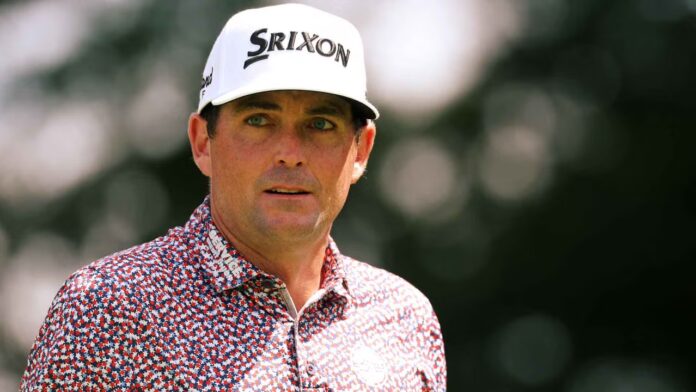The Ryder Cup has never been short on drama, but this year’s U.S. team announcement carried a twist that even seasoned fans didn’t see coming. When Captain Keegan Bradley stepped to the podium to unveil his six captain’s picks, he wasn’t just shaping the roster for Bethpage Black. He was also making a personal decision that will define his legacy: he chose not to name himself to the team.
It would have been easy, even expected, for Bradley to slot his own name into the lineup. His credentials are there—ranked just outside the top 10 in the world, a winner on the PGA Tour this season, and a fiery competitor with Ryder Cup experience. But after days of deliberation, consultation with his vice captains, and more than a few sleepless nights, Bradley said no. In doing so, he passed on the chance to become the first playing captain since Arnold Palmer in 1963.
“I thought about it, of course,” Bradley admitted, his voice carrying the weight of the decision. “But I believe my role is to lead, not to divide my focus. This team deserves every ounce of my attention.”
That single choice set the tone for the entire announcement. Bradley wasn’t building a vanity project—he was building a team.
The Locks and the New Blood
Six names were never in doubt. Scottie Scheffler, the world No. 1 and reigning major champion, will anchor the American side as its undeniable leader. Xander Schauffele, a Ryder Cup veteran with ice in his veins, brings consistency and a proven record. Bryson DeChambeau, equal parts power and spectacle, forces opponents to adjust to his game. Rounding out the automatic qualifiers are Harris English, Russell Henley, and J.J. Spaun, each of whom rode strong seasons into well-earned spots.
This mix of household names and newcomers gave Bradley a foundation, but the captain’s picks were always going to shape the character of the team. With his six discretionary choices, Bradley leaned on both form and pedigree. Justin Thomas, a fiery presence who lives for team golf, got the nod despite uneven play. Collin Morikawa, even in a quieter stretch, brings precision and major championship nerve. Patrick Cantlay, steady as stone, offers reliability in a cauldron. Sam Burns earned his place thanks to his putting prowess, the kind of weapon that decides close matches. The two rookies, Cameron Young and Ben Griffin, inject fresh energy—Young, with ties to Bethpage that make him a local favorite, and Griffin, a breakout star with multiple wins this season.
The roster, then, is a balance: veterans who know the pressure cooker and rookies eager to prove they belong.
The Heartbreak of the Bubble
But if selection day is thrilling for some, it’s agonizing for others. Jordan Spieth, Tony Finau, and Rickie Fowler—names etched in Ryder Cup history—were left out. Maverick McNealy, 10th in the standings, and Brian Harman, the gritty Open champion, were also passed over despite strong arguments in their favor. In the end, Bradley’s calculus was ruthless: form, fit, and chemistry had to matter more than reputation.
“It’s the hardest part of this job,” Bradley said, acknowledging the personal sting of calls made to players who came up short. He knows that sting better than anyone—just two years ago he was on the other end of that phone, left off the 2023 team despite a resurgent season. That memory, perhaps more than anything, explains the empathy behind his decision-making.
The Weight of History
Bradley’s refusal to select himself will be remembered as one of the most selfless calls in Ryder Cup history. The idea of a playing captain may sound romantic, but the modern event is a behemoth—part strategy, part spectacle, part psychological warfare. Even legends like Nick Faldo and Sam Torrance warned that trying to juggle the dual role would be a mistake. Rory McIlroy was more blunt: “You just can’t do both anymore. Not at this level.”
Bradley listened. And in stepping aside as a player, he avoided splitting his responsibilities and, perhaps more importantly, sent a message to his players: this isn’t about him, it’s about them.
The Road to Bethpage
With the roster now set, attention shifts to late September at Bethpage Black, where the Americans will attempt to reclaim the Cup from Europe. The venue, notorious for its difficulty and boisterous New York crowds, will suit Bradley’s fiery temperament and his team’s aggressive edge. Players like Cameron Young, who grew up not far from the course, will be local heroes. Veterans like Scheffler and Schauffele will be expected to shoulder the load. And Bradley, pacing outside the ropes rather than inside the ropes, will try to orchestrate it all.
Team USA arrives at Bethpage not as overwhelming favorites, but as a group forged from tough choices—choices that put chemistry above sentiment and sacrifice above ego. For Bradley, the decision not to play may sting personally, but if it translates into a victory on home soil, it will go down as one of the wisest calls an American captain has ever made.







